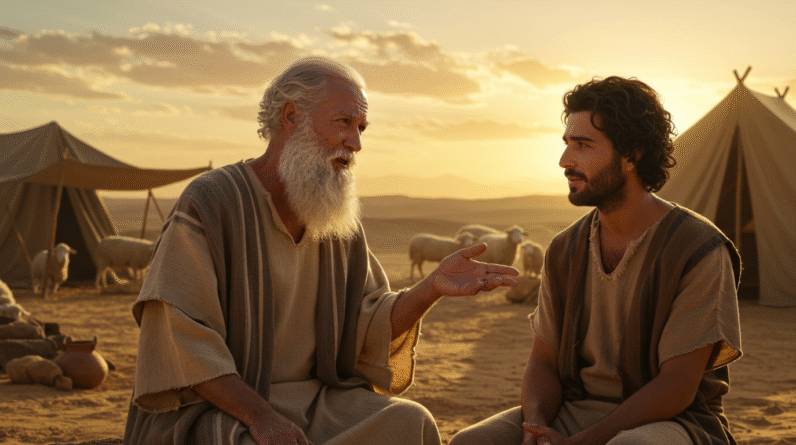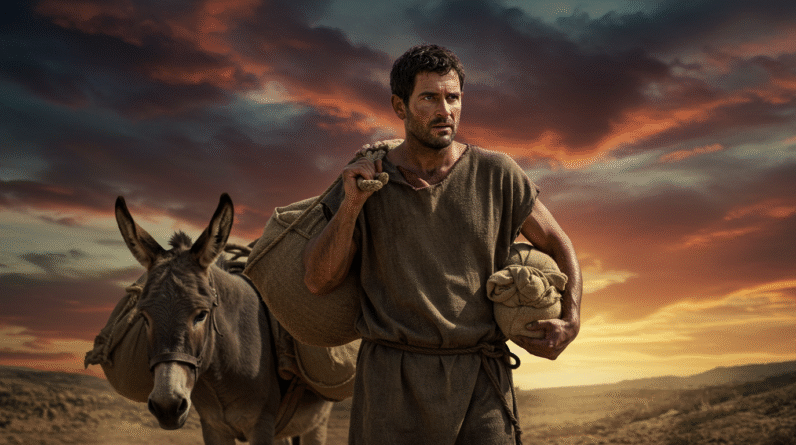Explore Philemon’s biblical tale of redemption and forgiveness, where faith redefines social ties and offers timeless lessons for today’s world.
Exploring the Story of Philemon in the Bible
Imagine being swept across the pages of the Bible, landing in a brief yet transformative epistle about redemption, forgiveness, and reconciliation. Welcome to the story of Philemon—a tale that, despite its brevity, encompasses themes as timeless as the words carved into the pages of the Holy Book itself. Philemon’s narrative is like a whisper amidst roars, revealing the profound impact of personal faith and community relationships through the lens of his interactions with the Apostle Paul. In the Book of Philemon, we encounter narratives of grace, the complexities of social dynamics, and the power of forgiveness, which resonate even today.
Philemon: The Man Behind the Epistle
Philemon is a man whose footsteps weave through the New Testament not so much in bold, headline-grabbing strides but in subtle impressions. A Christian leader living in Colossae, he is known to be a man of wealth and standing, likely opening his home as a church meeting place. His name is etched in the annals of faith as one of Paul’s esteemed acquaintances, serving as a beacon of kindness and hospitality in the early Christian community.
The essence of Philemon’s significance doesn’t rest on grand miracles or powerful sermons; instead, it lies in the warmth of his hospitality and the depth of his faith. As you trace his journey, you will find a story not about a singular hero in the traditional sense, but about the nuanced interconnections of faith, duty, and forgiveness that marked the early church. This intricate narrative begins with a letter—a personal plea from Paul that transcends time and circumstance.
The Story of Philemon in the Bible
Philemon’s story unfolds in the sole chapter of the Book of Philemon, a personal letter written by Paul during his imprisonment. It revolves around a runaway slave named Onesimus who, after fleeing Philemon’s household, finds himself in the unlikely company of Paul (Philemon 1:10-11). Under Paul’s mentoring, Onesimus converts to Christianity. This unexpected turn of events leads Paul to pen a heartfelt appeal, beseeching Philemon to welcome Onesimus back, not as a slave, but as a beloved brother in Christ (Philemon 1:15-16).
Paul’s letter is a masterpiece of diplomacy and Christian doctrine, weaving themes of love, justice, and transformation. He acknowledges Philemon’s past wrongs through Onesimus’ actions yet emphasizes the possibility of his renewal in Christ. This narrative showcases a transformative approach to relationships: a call for Philemon to transcend societal norms of power dynamics and extend forgiveness, embodying the grace inherent in his faith.
The story culminates as Paul’s words carry both a personal and a collective charge—a request that Philemon’s response to Onesimus exemplifies the redemptive power of Christian fellowship. This act of grace isn’t simply about a personal resolution but a broader testament to the unity and equality within the Christian community.
Lessons from Philemon’s Life
Philemon’s story is rich with lessons that echo into the corridors of contemporary life. Firstly, it speaks of the transformative power of forgiveness. In a world where grudges and past mistakes often chain us like shackles, Philemon’s willingness to forgive Onesimus is a liberating tale. Forgiveness becomes not just a moral directive but a path to personal and communal peace, reminding you that letting go of past hurt paves the way for new, restorative beginnings.
Moreover, Philemon teaches about the impact of Christian love in action. His narrative isn’t merely about theological abstraction but about how faith finds its expression in deeds. By opening his home as a church and embracing Onesimus, Philemon demonstrates the tangible nature of living out one’s beliefs in community with others.
Lastly, Philemon invites a reconsideration of social and status divisions through the lens of faith. His story calls for you to reevaluate societal norms and embrace equality, just as he was challenged to view Onesimus as a brother. In doing so, it urges the modern-day person to look beyond worldly divisions and embrace the unity and shared identity offered through faith.
Connecting Philemon’s Story to Today’s World
How does Philemon find relevance in today’s bustling, often divided world? Consider the currents of racial, economic, and social injustice; the story of Philemon becomes a cogent reminder of the Christian call to reconciliation and unity. Like Philemon, you might find yourself confronted with decisions that test the parameters of your compassion and challenge the preconceived notions of justice and equality.
In an age where cancel culture and digitized outrage prevail Philemon’s tale encourages the pursuit of reconciliation over reprisal. Whether in personal relationships or broader societal contexts, the call to forgive, reconcile, and renew relationships stands as a counter-cultural yet profoundly meaningful path.
As you navigate the challenges of belonging and community, Philemon’s story echoes the necessity of looking beyond the immediate circumstances and embracing the eternal perspective of unity and brotherhood in faith. It propels you to question: How can reconciliation reshape our approaches to conflict, and how can love reset the discourse around justice and equity?
Key Bible Verse
A pivotal verse encapsulating Philemon’s journey is when Paul writes: “Perhaps the reason he was separated from you for a little while was that you might have him back forever—no longer as a slave, but better than a slave, as a dear brother” (Philemon 1:15-16). This verse underscores the transformative power of divine providence and redefined relationships, urging the reader to embrace the possibility of redemption and lasting change through faith.
A Thought-Provoking Question
As you reflect on Philemon’s story, consider: In your interactions and decisions, do you allow room for transformation and reconciliation, viewing others through the lens of divine possibility as Philemon was encouraged to do with Onesimus?
Final Reflections
Philemon’s narrative may be brief, yet its impact resonates deeply, urging you to explore the vistas of forgiveness and community. It reveals facets of faith that inspire a closer examination of how you interact with those around you and how God’s transformative grace can redefine even the most complex of relationships. As you ponder this story, let it be an invitation to embrace a life marked by reconciliation and unconditional love.







